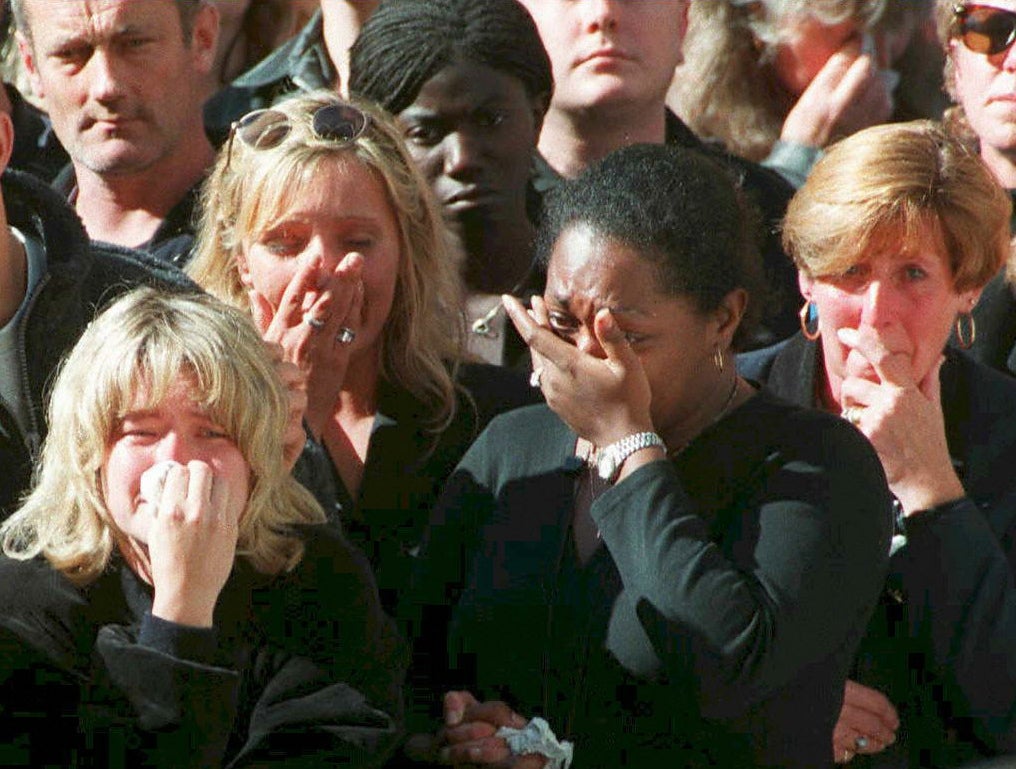The attempts to censor Private Eye after Diana's death remind us of how a nation went mad with grief
No other newspaper or magazine captured – or stood up to – the bonkersness that had gripped the country quite like the Private Eye did


I remember the teddy bears. Along with all the flowers, hundreds of bears were laid in memory of the “People’s Princess” 20 years ago.
There were so many bears that one couldn’t help thinking: “They’re going to get rained on, and would do better being supplied to children around the world, for that is surely what Diana would have wanted.”
In the spirit of that time, I too thought I knew Diana, even if I never thought I could have been her friend as every other person interviewed on telly claimed they would – if only Diana had had an inkling and had given them a call.
But no, Diana had the number of none of her would-be buddies.
Maria Rigolova and Agnese Sihelksa, two Slovakian tourists in their fifties, received 28 day jail sentences for stealing 11 of the bears.
A day earlier, a Fabio Piras, a 20-year-old Sardinian, was fined £100 for stealing a bear and he was punched in the face by a demonstrator outside the court who told him Diana was “queen of all our hearts”.
It is of course, outrageous to steal a bear from a memorial, even if there are thousands of them. The judge was right to compare the act to graverobbing.
But it’s a measure of how deep the sweep of what we were supposed to be feeling was that the Slovak embassy felt the need to disavow its citizens – who were tourists, not official representatives of the country.
In a statement, the Slovaks said what the women had done was “despicable and unforgivable”, adding: “We believe the verdict of the court and the sentence that ensued from it were entirely commensurate with the nature of this most deplorable crime.”
How’s that for bending double in respect. London had turned into Pyongyang. No wonder Princes William and Harry recently revealed they were bemused by the public reaction, by people who “didn’t even know” Diana.
Stealing teddy bears from a memorial is disgusting; it’s preying on the dead, but our leaders in mourning were the press – whose goons, as Prince Harry reminded us last week, were taking photos of his mother while she was dying in that car. Those photos, he said, reached the desks of newspapers.
It was these newspapers, and the ballooning sense of national mourning they were whipping up, that Private Eye punctured with its issue of 8 September 1997.
There was outrage – it was withdrawn by three big retail chains, including WH Smith. Why? Because the target of its satirical wit was not the papers so much as the public.
Its front cover carried the headline “Media to Blame” over the picture of a crowd outside Buckingham Palace. Then there were its trademark speech bubbles:
“The papers are a disgrace,” said one.
“Yes, I couldn’t get one anywhere.”
“Borrow mine, it’s got a picture of the car.”
Ouch.
“Editor Ian Hislop estimates that one third of the magazine's usual 180,000 sales were lost because of the censorship by newsagents,” reported The Independent at the time.
Hislop said: “We pointed out to Smiths that they had been making money from selling tabloids printing pictures of Diana just hours before her death ... So it was rather hypocritical of them not to put the Eye on their shelves. The fact is that is that this supposed deep grief expressed itself in terms of self-righteousness.”
Christopher Hitchens summed up things up on a US TV show: “We’ve been drowning in drool,” he said. Instead of “objective coverage of an event” there had been “the forced recruitment of everybody into the same emotional mould”.
Now as the world remembers Diana, perhaps as a mark of respect to free speech we should all go out and buy a copy of the magazine that was brave enough to stand up to the bonkersness that had gripped the country.
“If Hislop and ‘Private Eye’ did not exist,” as Matthew Engel wrote in the FT in 2011, “It would be necessary to invent them.”
RIP Diana. Long live Private Eye.

Join our commenting forum
Join thought-provoking conversations, follow other Independent readers and see their replies